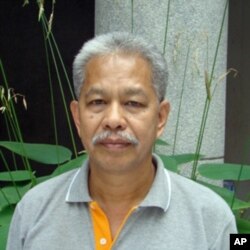The Thai capital, Bangkok, has begun to return to normal with hectic traffic replacing last week's burning fires and emptied streets after security forces routed thousands of protesters, putting an end to a two-month-long anti-government demonstration.
The stock exchange, major banks and schools reopened, although an overnight curfew remains in place in the city and several provinces.
Government officials estimated two months of protests in Bangkok, and last week's military crackdown that ended them, cost the economy about $5-billion. They say it will lower economic growth by up to one and half percentage points, and cut tourism revenues by 10 percent.
At least 88 people died in a series of violent incidents since the protests began in March, including protesters, security forces and journalists. Almost 1,900 were wounded.
But human rights organizations say Thailand will only fully recover if it can bridge sharp social divisions by making significant political reforms.
On Monday, human-rights groups began investigating the protests and the government response. Led by the Law Society of Thailand, dozens of young lawyers are interviewing those affected by the protests.
Somchai Homla-or, a human-rights lawyer and member of the Law Society, says many people suffered rights violations. He called on the government to carry out its promise to independently probe abuses that took place during the crisis.
"An independent body to make an investigation about what happened during the past two to three months to get the truth," Somachi said is necessary. "We believe that if we want to build the reconciliation process the truth is very important otherwise the conflicting parties will just blame each other."
Even as rights groups begin their work, the Justice Ministry raided locations tied to the protesters, including the offices of anti-government magazines.
Somchai says the government must undertake political and constitutional reforms to ensure that reconciliation efforts succeed. Among other things, he urged the government to allow banned politicians to resume political activity.
"Our political structure should be more open for the political group," said Somchai. "Without involving those politicians in the democratic process I do not believe that we can solve the conflict problem, they will use other means which maybe violent, or lead to violence or illegal," he said.
Under Thai law, leaders of a political party are banned from government and elections for several years if the party is found to have violated campaign laws. The red-shirt wearing, anti-government protesters who took to the streets in Bangkok have complained the law has been unfairly used to ban candidates and officials they favor, while accusations of illegal activity against the ruling Democrat Party and its coalition partners have not been investigated.
The protesters largely support former Prime Minister Thaksin, ousted in a coup in 2006. They demanded the government resign and call new elections immediate, and rejected a compromise off of elections in November.
The government accuses Mr. Thaksin of masterminding the protests, and being responsible for the wave of arson and violence that some protesters launched as the military demolished their camp last week. Mr. Thaksin denies the accusation.











